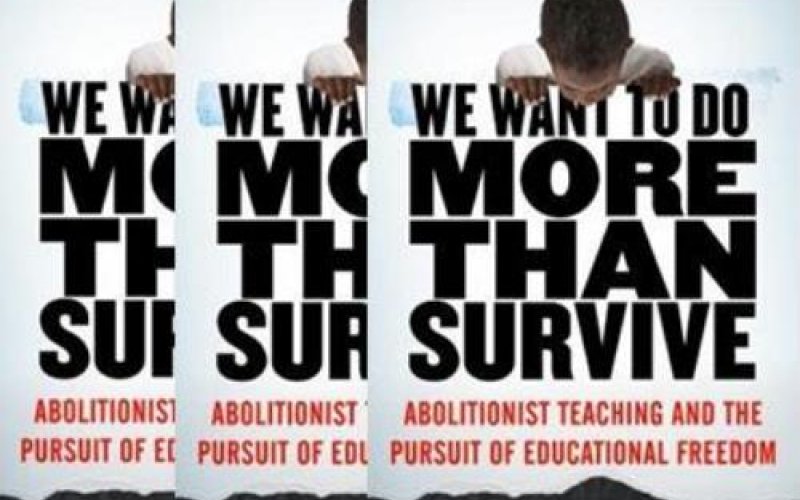SOE Book Club Broadens Discussion on Culturally Informed Teaching

As part of the School of Education’s Equity and Inclusion initiative, a book club has been created to stimulate further discussion on culturally informed instructional strategies designed to foster a greater awareness of oppressive social structures that impede student success. As such, over the past two months a small group of SOE faculty and staff have been reading Bettina Love's 2019 volume entitled "We Want to do More than Survive: Abolitionist Teaching and the Pursuit of Educational Freedom." In her book, Love demands that educators adopt an "Abolitionist" approach to their teaching, abolishing systems of oppression that result in the erasure of Black, Brown and other marginalized students within our schools. The following paragraph captures the essence of Love's thinking when she writes:
"Abolitionist teaching is asking a lot of all teachers, but good pedagogy should. Any pedagogy that does not interrogate and challenge Whiteness is inadequate, especially since more than 80% of the teaching force is White. Any pedagogy that does not help teachers contextualize students realities is in inadequate because no student is solely responsible for their reality. Any pedagogy that does not challenge injustice is useless because survival is not the goal. Abolitionist teaching asks a lot because the work is too important not to" (pg. 123).
Members of the book club have been moved and challenged to think more specifically about the School of Education’s role in preparing teachers who will practice "Abolitionist Teaching" and have discussed ways in which the SOE could more fully engage education as the practice of liberation. These powerful, and at times very personal, discussions are allowing participants to "imagine" something different, and engage "Freedom Dreams." We are hopeful that this very successful first step will pave the way for multiple book clubs, and greater participation in discussions on how the SOE can "imagine" how to more effectively enact equity and inclusion in our pedagogy, our community, and our way of being.


